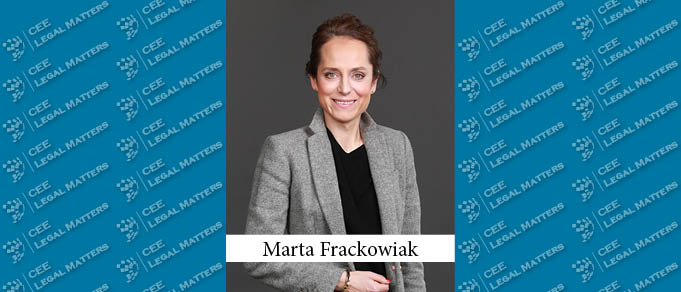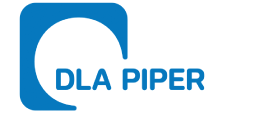DLA Piper has advised Cube Infrastructure Managers on the acquisition of MVV Energie CZ. Eversheds Sutherland reportedly advised the sellers.
Significant Changes to Hungarian Competition Law: Increased Merger Thresholds, Refinement of Powers, DMA Enforcement
The Hungarian Parliament recently adopted a rather significant update to Act LVII of 1996 on the prohibition of unfair market practices and the restriction of competition (“Hungarian Competition Act”). The updates are, at a number of points, based on recommendations made by the Hungarian Competition Association (with DLA Piper’s antitrust group providing significant input). The amendments will generally enter into force on 1 January 2023 (with some exceptions for 1 February 2023). Below, we have collected some of the key changes for Hungarian and international businesses.
Marta Frackowiak Re-Elected to DLA Piper International Board
Warsaw-based DLA Piper Partner and Head of the Corporate and M&A practice Marta Frackowiak has been re-elected to the firm’s International Board for a term starting on January 1, 2023.
DLA Piper and Cytowski & Partners Advise on Promethean's Acquisition of Explain Everything
DLA Piper has advised education technology company Promethean on its acquisition of Explain Everything. Cytowski & Partners advised Explain Everything.
Closing: Wirtualna Polska’s Acquisition of Szallas Group Now Closed
On November 30, 2022, the BLS-CEE Law Firm announced that Wirtualna Polska’s acquisition of the Szallas Group from Portfolion Capital Partners and private individuals (reported by CEE Legal Matters on September 16, 2022) had closed.
DLA Piper Advises DHL on Sale of Logistics Portfolio in Six European Markets
DLA Piper has advised DHL on the sale of a real estate portfolio including ten sites across Poland and five other European markets.
Buyers Beware – New Hungarian Merger Control Rules for Acquisitions Involving JVs
Hungarian merger control is generally aligned with the relevant EU rules with only relatively minor exceptions or special rules. For example, a notable special rule – which follows similar trends in major European jurisdictions – is the existence of the soft threshold regime, which enables the Hungarian Competition Authority (the Gazdasági Versenyhivatal, “GVH”) to intervene in case the traditional/“hard” thresholds are not met, but where competition is threatened on a specific market (e.g. in case of “killer acquisitions”).
Ricardo Gardini de Andrade Joins DLA Piper as Partner in Vienna
Former Freshfields Bruckhaus Deringer Senior Associate Ricardo Gardini de Andrade has joined DLA Piper's Vienna office as a Partner to work in the firm's Litigation & Regulatory practice.
Did You Know: 2022 Czech Leaderboard
Did You Know that, according to the Activity Rankings function of the CEELMDirect website, Havel & Partners has worked on 25 Czech client matters so far this year – more than any other law firm?
Austria Will Be Alright: A Buzz Interview with Christoph Mager of DLA Piper
The increasing US-based investor interest in Austrian tech start-ups – despite the hard times and a certain lack of governmental decisiveness – is creating a buzz in the country, according to DLA Piper Austria Managing Partner Christoph Mager.
New Mandatory Centralized Electricity Acquisition and Sale Mechanism for the Romanian Energy Market
Following in the footsteps of the previously adopted Government Emergency Ordinance no. 27/2022 on the measures applicable to final consumers on the electricity and natural gas market between 1 April 2022 and 31 March 2023, as well as for amending and supplementing certain regulations in the energy sector (GEO 27/2022), as well as the subsequent Government Emergency Ordinance no. 119/2022 (GEO 119/2022), which amended GEO 27/2022 as of 1 September 2022, the Romanian Government has recently adopted a new regulatory act, further amending both GEO 27/2022 and GEO 119/2022, and establishing an even higher degree regulatory control over the energy market, in the form of Government Emergency Ordinance no. 153/2022 for the amendment and supplementation of GEO 27/2022 and GEO 119/2022 (GEO 153/2022), published in the Official Gazette of Romania on 11 November 2022.
KSB, Szecskay, and DLA Piper Advise on Sandberg Capital’s Acquisition of Green Fox Academy
Kocian Solc Balastik, Szecskay, and DLA Piper have advised Sandberg Capital on its acquisition of a majority stake in the Green Fox Academy. The Arday, Sisa and Joosz Law Firm reportedly advised the sellers.
Czech Republic: The Dispute Resolution Landscape – Commercial Disputes
In this article we provide a brief summary of the Czech dispute resolution landscape, focusing on commercial disputes.
Austria: Online Gaming and the Tension Between National and EU Law
Approximately two and a half years ago, online gambling providers started being sued by their customers, in various courts in Austria and Germany, demanding reimbursement for their losses by arguing that these services are offered illegally. This article will highlight some of the main issues surrounding these claims.
Sorainen Advises INVL Baltic Sea Growth Fund on Investment in LuxVet
Sorainen has advised the INVL Baltic Sea Growth Fund on its investment in LuxVet through INVL portfolio company MiniVet. DLA Piper’s Luxembourg office reportedly advised the INVL Baltic Sea Growth Fund as well.
Norton Rose Fulbright Advises Accolade on Acquisition and Development of Logistics Parks in Poland
Norton Rose Fulbright has advised the Accolade Group on its land acquisition and development of two logistics parks in Poland – one in Zielona Gora and one in Pila – from Panattoni Europe. DLA Piper reportedly advised Panattoni Europe.
Greenberg Traurig Advises Trigea on Tricity Logistics Park Acquisition
Greenberg Traurig has advised the Trigea Real Estate Fund on its acquisition of a logistics park near Poland's Tricity. DLA Piper reportedly advised the seller.
DLA Piper and Baker McKenzie Advise on Wirtualna Polska’s Acquisition of Szallas Group
DLA Piper has advised Wirtualna Polska on its acquisition of the Szallas Group from Portfolion Capital Partners and private individuals. Baker McKenzie advised Portfolion.


















